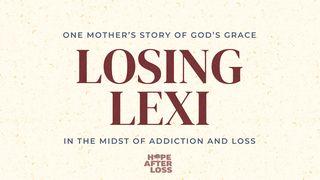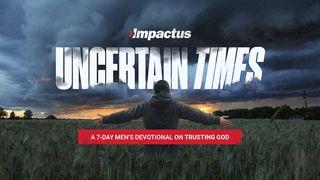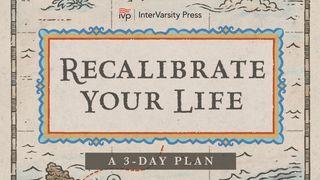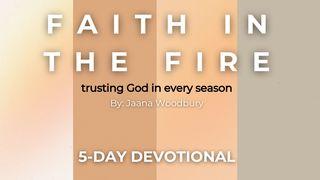Deep Waters, Deeper Love: Marriage Lessons From JonahSample

I think every married person has at one time or another tried to avoid having a difficult conversation with their spouse. For me, those conversations begin with the time I tried to help Nancy by washing the clothes when all the whites turned pink, thanks to the pair of red shorts I tossed in at the last moment. Then there are the times I have promised to do something for her and completely dropped the ball. This tendency that we have to run from difficult conversations often mirrors Jonah's running from God. God told Jonah to go to the city of Nineveh and tell them the good news about God. Jonah despised the Ninevites and headed the opposite direction choosing to avoid what God had called him to do.
In marriage, when one spouse avoids addressing issues—whether financial struggles, parenting issues, intimacy problems, or any of a number of different issues—it creates a ripple effect that can spread over the entire relationship. Unaddressed, these problems in marriage grow in intensity until they become crises.
God told Jonah to go to Nineveh. Jonah boarded a ship bound for Tarshish. Tarshish was 4,335 miles from Nineveh. Today it would take you 3 days and 17 hours to drive that distance. Jonah did everything he could to avoid a continuous conversation with God. And because of his disobedience, God caused a great storm to appear that threatened everyone on the ship with Jonah and threatened to tear the ship apart. The sailors took a different approach with Jonah. They did not avoid the confrontation. They wanted to know if Jonah, this stranger on their ship, was the cause of the storm. This direct approach by the sailors models healthy confrontation in marriage. They didn't talk about Jonah among themselves or make assumptions; instead, they asked Jonah directly, "Tell us, who is responsible for making all this trouble for us?" (Jonah 1:8). In the same way, when something feels wrong in your marriage, direct communication without accusation creates space for honesty. Avoidance or running or both never works—at least in the long term.
With no place to run, Jonah responds, "I know that it is my fault that this great storm has come upon you" (Jonah 1:12). Jonah, the avoider, now demonstrates the power of taking responsibility. In marriage, owning our own contribution to problems—without blaming or making excuses—is the first step toward resolution. The storm calmed only after Jonah faced the consequences of his actions. My experience is that peace in marriage often comes after honest accountability and conversation.
Next Steps:
Set a time each week to evaluate the "climate" of your marriage. It could be sunny, cloudy, or stormy. Each of you rate and then share. If things are sunny, celebrate. If cloudy or stormy, share with each other why you rated it that way. Pray for God's wisdom and then discuss ways to "change the climate."
Challenge:
To keep issues from being avoided or buried beneath the surface, practice "Jonah 1:8. Ask questions that directly but lovingly address your concerns: Use phrases like: "I've noticed [name the specific behavior]. Can you help me understand what's happening?" This will help prevent issues from being hidden and the opportunity to bring them into the light.
Scripture
About this Plan

The more I study Jonah, the clearer it is to me that there is wisdom to strengthen and grow marriages today. From Jonah's disobedience to God as the story begins all the way to the lessons he receives about compassion as the book closes, I think you will see how these principles can help you as a couple deepen your connection and overcome your marriage challenges.
More
Related plans

Healing From God

Losing Lexi: One Mother's Story of Grace in the Midst of Addiction and Loss

Jonah

From Lament to Hope: Wellbeing and Happiness in the Psalms

Desperate Woman Seeks Friends by Kristen Strong

The Weight of Love: Reflections on Jesus' Death and Resurrection

Uncertain Times

Commissioned: Passion to Purpose: Living the Great Commission

Recalibrate Your Life
